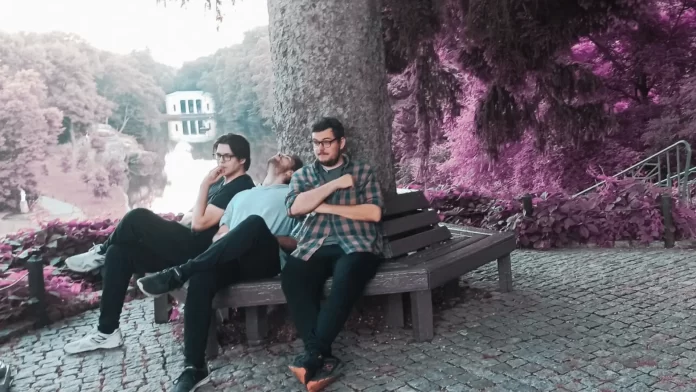Creating an About page for Splitor felt like narcissism; writing an article about the experience feels even more. And here’s a paradox. On one hand, there’s a wealth of experiences to share from nearly four years in the game. On the other, it’s a challenge to pinpoint what sets us apart. Our missteps? They’re industry staples, nothing groundbreaking. Our wins? Solid, but hardly the stuff of legend. Yet, here we are, tasked with crafting a narrative that does justice to our journey. It’s not about boasting or dwelling on the past; it’s about capturing the essence of Splaitor—warts and all. So, let’s dive into the ordinary and extraordinary story because it’s uniquely ours.
The short pre-history
I’ve been captivated by the world of online publishing since my school days. My first venture, Digitatal.com, was a deep dive into Silicon Valley’s bustling business scene. I churned out around 350 articles and attracted nearly 7,000 monthly visitors. Not too shabby, right? But back then, it felt like a flop. There’s something gut-wrenching about pouring into content that doesn’t seem to resonate.
So, I pivoted. I launched Debaisu, a site focused on Japanese culture, thinking the allure of the exotic would be my ticket to success. It wasn’t. Debaisu barely scraped together 1,000 monthly visitors, making my previous “disaster” look like a triumph.
An even bigger disaster is my diligence. I’ve got this insatiable appetite for creating Digitatal, Debaisu, and a slew of other projects that never saw the light of day. Take The Ballot, my unrealized dream of diving into the American political arena. Dodged a bullet there, a happy one.
My restless energy didn’t stop at websites. I dabbled in blog platforms like Kinja, tried my hand at news analysis with ImhoNews, and even got swept up in the allure of established political blogs like Guido Fawkes. Every time I stumbled upon something cool, I’d think, “Hey, I can do that too!” and off I’d go, registering new domains and drafting plans for the next big thing. Most of them never saw the light shining on them.
My ambition was to write checks that my focus couldn’t cash. Maybe that was a lesson? Na-ah.
I wrote CNET, Gizmodo, The Verge, Engadget, Business Insider, Re/Code, and Forbes and told them, “Hire me; this is what I can do.” Sometimes, I’d even get a response. They’d ask for a CV or ask me what degree I had. And they’d wish me a lot of luck when they heard I hadn’t finished school yet.
University life and hostel living threw a bit of cold water on my website-building frenzy. The pace slowed, but the itch to create never fully went away. I’d still get these bursts of inspiration, launch a new site, and pen ten of articles before losing steam. It was like a recurring cycle of enthusiasm followed by a reality check.
One of those “short-lived” sites from 2016 turned out to be a sleeper hit. A single article I wrote amassed a staggering 100,000 visitors over five years, but I completely forgot about them, so I discovered this only in 2021. It was a wake-up call, reminding me that the seeds you casually plant can sometimes grow into something substantial when you least expect it.
But I discovered this hint a year after I was developing Splaitor, so I don’t think it influenced me in any way.
And let’s go back to Uni. University wasn’t just a crash course in economics and last-minute project hustles; it was also a training ground for life skills. Like how to spar intellectually with professors without burning bridges. And a little bit of learning about how to focus at least on something.
For example, we managed to run an amazing election campaign for Student Parliament and win it. And after spending about $20 to launch a student newspaper that was read by several thousand students every day.
The Splaitor launch
Splaitor was actually launched in 2019 as a mere sidekick to another site; it was supposed to be a niche corner for consumer tech. Bought a bunch of domains, penned a quick nine articles, and then let it gather digital dust. The classic.
But 2020 had other plans. A casual peek into Google Analytics revealed a daily visitor count hovering around 100. A couple of those forgotten articles turned out well in the search. I actually don’t know why those time everything went the other way. But I started doing things every day without throwing things away after a couple of weeks of hard work.
Then, my dad, who was developing Tab-TV, offered us to combine forces, and things just snowballed from there. What started as an afterthought became a joint venture, a testament to the unpredictable yet rewarding nature of the digital world.
Visitors grew quickly, and so did advertising revenue. So things were looking top-notch until my absent-mindedness played its part again. In 2021, we added a focus on business and money; in 2022, we added life and culture coverage.
We tried to focus on an endless number of topics and put all the spare money we had into hiring new staff. It seemed like a great idea, but the reality turned out to be a bit different. In fact, working under my supervision was a complete hell. If I can ever become successful, one of the fired employees will write a book about me and be interviewed a lot. But it’s true. I used to set horrendous agendas for employees, and one of my favorite thoughts was, “They should forget about their personal lives and work.” Obviously, this translated into content quality that, to put it mildly, left a lot to be desired.
It was all about a major re-evaluation of keyword tools. They’re great, but at least some of those resources that we could have spent on in-depth research we were spent on writing another How To. And even there, we often didn’t endeavor to delve deeply into the topic. After all, why would we? It’s easier to write a few dozen articles and get a chance for them to rank high in search than to spend time doing in-depth analysis. That’s the way we thought back then.
Things have changed now. We still write guides because it’s useful to our readers. However, I will say without exaggeration that our guides are often better than the competition by a mile. We visually show and test every single thing we write about, find pitfalls, and make good visual presentations.
The same seemed even such a trivial thing as the cover of the article. We spent neither time nor money on something special and used free images from Unsplash, because of which you may notice that for some articles, the images are repeated several dozens of times.
Then, we moved on to making simple pictures. And only in the middle of 2023, we realised that the cover is the face of our article. So from now on, we make all the pictures from scratch and strive to make them look so that you realize that the authors have really worked on what you are reading.
Another problem we had was the lack of checks. A lot of the articles we published were of frankly poor quality. Simply because we didn’t take the time to check out contractors, letting things slide, now this is our headache; at Tab-TV, we have rewritten over 1500 so far, making them deeply researched, significantly improving, and changing all the things that could cause issues. Now it’s all changed.
This hurt us in 2022; we lost a lot of visitors, around 50. So now we have made one simple conclusion – quality is more important than quantity. Even if we end up earning less in the short run, it will have more impact in the long run. There’s no reason to place 100 articles if only 10 of them would be worthy and helpful. It’s always better to write 30 articles and get 12-15 of them to be great.
And that’s the simple but extremely important thought if you want to be great in digital business. Don’t try to do too much; better focus on something more focused.






